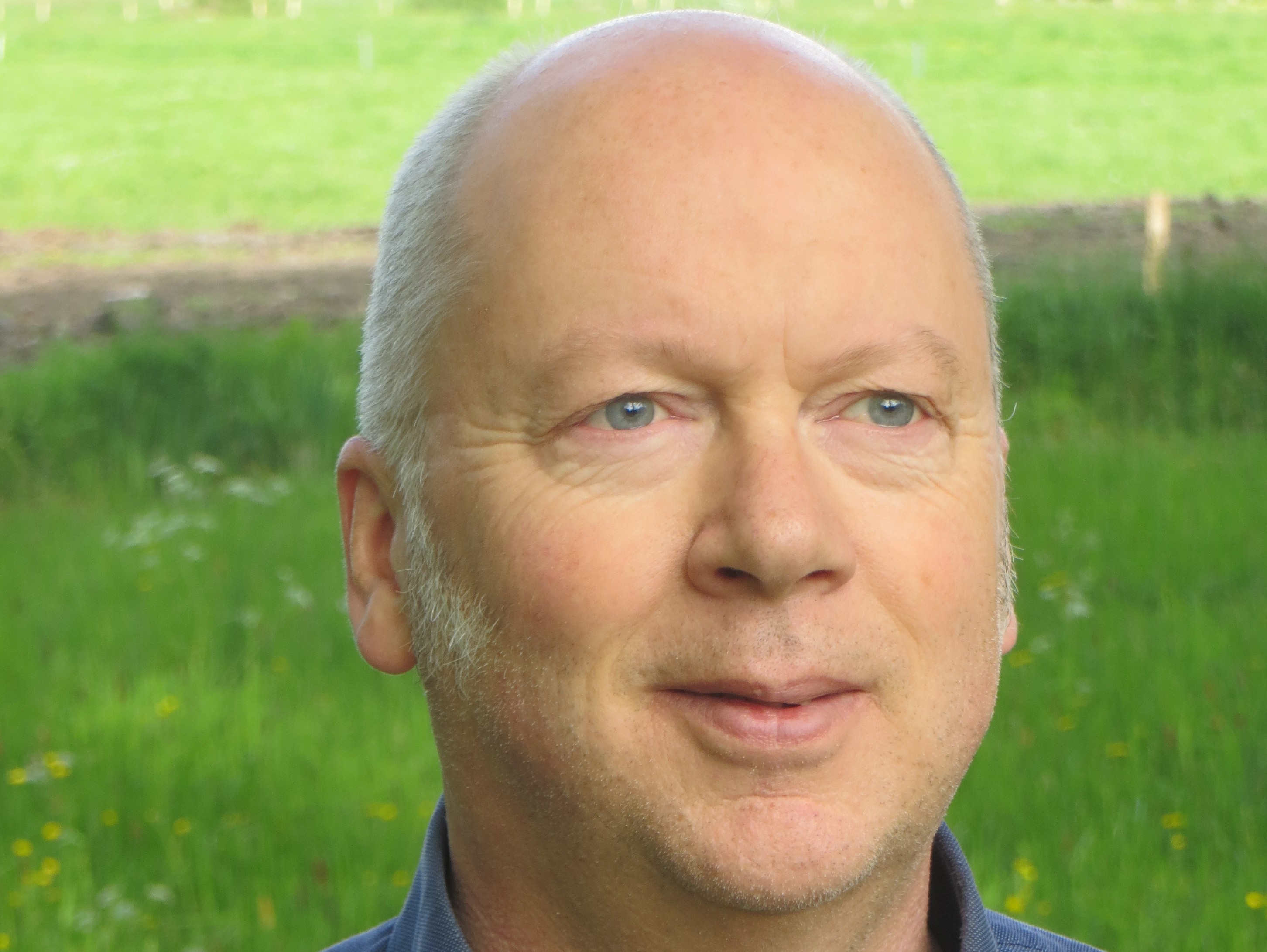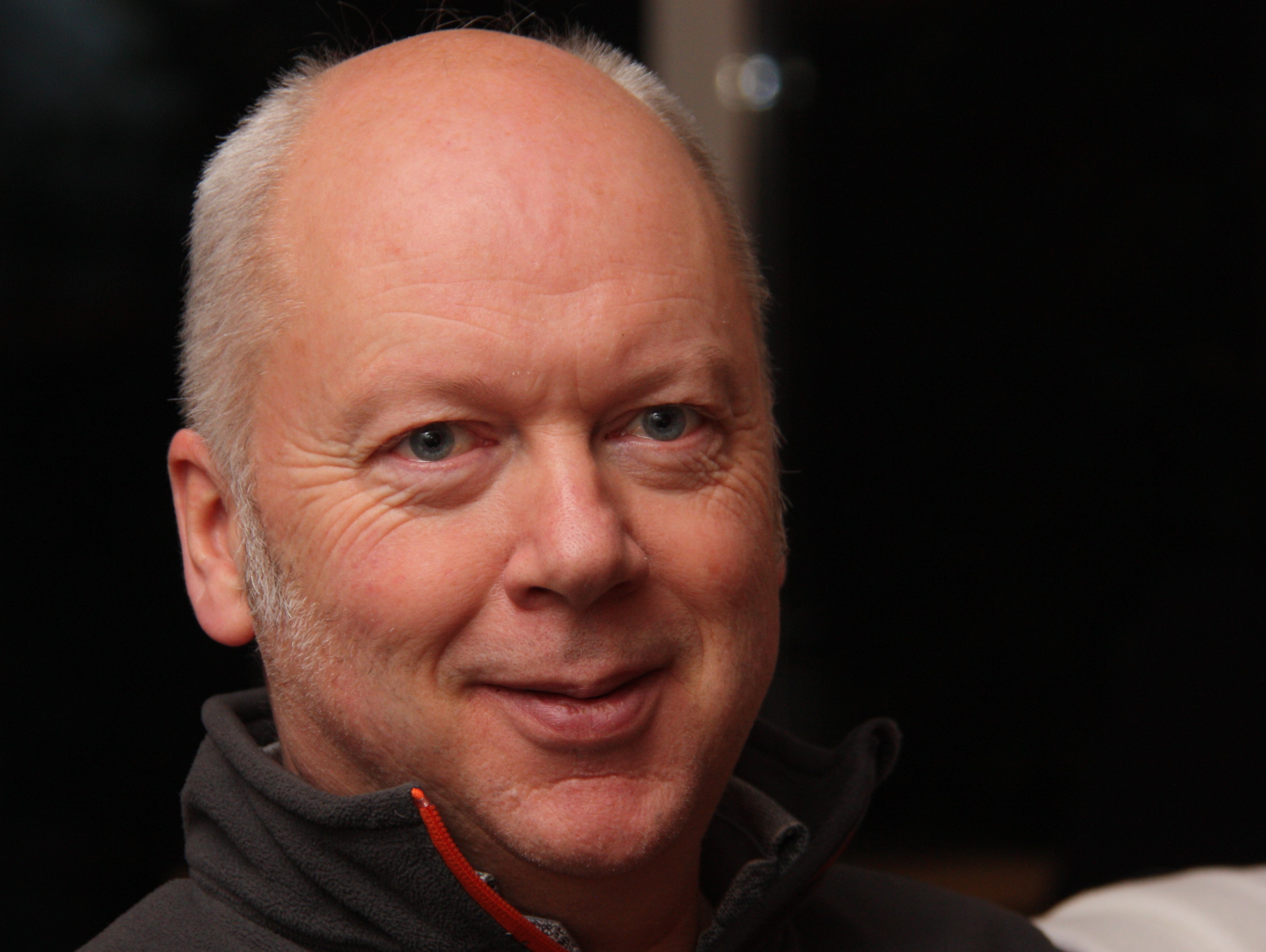
Headed up by Professor Evert-Jan Ulrich, the Innovation and Development chair at HAS University of Applied Sciences is focusing on new approaches to education and innovative entrepreneurialism. Evert-Jan was inaugurated on 13 May 2014. The theme of the afternoon was ‘HAS University of Applied Sciences in 2025: En route to a more development-oriented and people-oriented system of learning and working’. He explains more in this interview.
“The current education system no longer meets today’s needs – something has to change, and I don’t mean in a few years’ time.” Those were the opening words of Evert-Jan’s inaugural speech. He is well aware that updating education is “a hell of a job”.
“The current education system is pretty much the same as it has been for the past 200 years. Fixed four-year learning plans, limited developmental capacity. A lot of attention is paid to how the learning plans are executed. Timetables, periods, meetings and e-mails restrict the freedom of movement. This system fits with the ‘old’ world, where careers are characterised by little or relatively gradual change. Where job functions remain virtually the same for decades. This education system is also focused on questions such as ‘What are you lacking?’ and ‘What do you still need to learn?’. Everyone on the same course has to learn the same things. This method of teaching is killing creativity, uniqueness, entrepreneurialism and the development of intelligence. Today’s students want to be heard, to make their own decisions, they want to be challenged and to discover things for themselves. The new ‘Generation Z’ are world citizens, open-minded with a strong affinity with interactive ‘new’ media, who are keen to make a contribution to society as long as that can be combined with plenty of own initiative. This generation has a clear need for a different learning system.”
“The world we live in is changing rapidly and becoming ever-more complex. It’s a globally connected world. Even in poorer countries, there are more and more smartphones: people are increasingly connected. This requires new skills and forms of organisation. Self-awareness, collaboration and knowledge sharing are becoming more important. That is at odds with the way schools and businesses are organised, where it’s all about protocols and established patterns. The ‘superstructural organisations’ are too slow and cumbersome to anticipate these changes. In effect, employees are ‘imprisoned’ in the systems. Organisations are still very internally focused, companies are too busy keeping their heads above water, generating revenue and minimising costs. That leaves little room for innovation. And yet technological innovations (robots, nanotechnology, 3D printers, sensors, etc.) are becoming more important all the time. People are still underestimating the role and impact of ICT. Just look at the banking sector; the response to the meteoric rise of online banking was far too slow. People carried on in the traditional way, both within the companies and in banking education. Many branches have had to close, and bank employees are out of jobs.
‘Learning will increasingly be done in networks. Creativity and entrepreneurialism will become core values’
I think so. According to recent research by Oxford University, many more careers will vanish as a result of automation and digitisation. The top 3 are telemarketing, accountants and shop assistants. On the other hand, new careers and jobs will emerge. The traditional education system of learning and exams inadequately prepares students for future roles which will require different skills.
“The future will call for ‘creative dissenters and constructive critics’, to use the words of Minister Bussemaker. In addition, self-awareness and creativity will be necessary. We need people who excel in things, and people who can make connections. So far in business, ‘male’ characteristics have always been an asset, such as individualism, analysis and an eye for detail. In the future it will be typical ‘female’ qualities that are essential such as being able to form connections, community spirit, synthesis and seeing the wider context.”
“Yes, I am. For older generations, including lecturers, it’s difficult to keep pace with the new developments. There’s no room to do things really differently in the current education system. Lecturers and students are trapped in a straitjacket of timetables, periods, exam culture, accreditations and fixed procedures. Of course, this involves some project work but that always has to be documented, meaning that students with weaker literacy skills are scored lower. I think that there are lots of possibilities, but we need to shake off our fears. I mentioned all those careers that are going to disappear as a result of changing communication, automation and robotisation: who’s thinking about that now, and doing something about it? Should we really keep educating and training so many people for jobs that will vanish in the foreseeable future? We really need policies to deal with this.”
“Lecturers won’t vanish but their roles and tasks will change dramatically. A lecturer will no longer present many – if any – lectures or standard, repeated lessons. Some skills can’t be ‘automated’: creativity, forming connections, management skills, originality, social interaction. Lecturers will acquire a coaching role. There will be lots of project work: multidisciplinary, international, technological and commercial projects. Real collaboration, such as between secondary schools and universities, for instance. That hardly happens now. But everyone has talents; you just have to know what the other person is capable of and where their talents lie.”
‘If we want to be travelling in a different direction in the near future, we need to ‘get in lane’ now!’
Evert-Jan laughs. “Diplomas will disappear and will be replaced by portfolios which allow you to demonstrate your knowledge and skills. Are you entrepreneurial, good at innovative thinking, how do you maintain your network or create connections? A portfolio is unique. You can really show who you are and what benefits you can bring to a company.”
“I don’t think so, not yet. The commercial sector is still very much competence-oriented. Companies are always looking for a ‘master of all trades’, but that’s an unrealistic expectation. That’s why we need to improve our focus on spotting talents and building on them together.”
“If we want to be travelling in a different direction in the near future, we need to ‘get in lane’ now! Within HAS University of Applied Sciences, I’m encouraging more talent-focused education and knowledge development through projects with self-managing learning communities. I’m an advocate of equality from the perspective of mutual learning, of more openness and trust. Of discussing each other’s responsibilities. The role of a lecturer will shift towards observing. Traditional education often has insufficient insight into inhibiting factors such as the impact of a troubled home life on learning. It’s my experience that in the Innovation class, where there is much more personal interaction between students and lecturers and between students themselves, personal issues are more likely to be shared – and that leads to solutions. It’s only possible if there’s a basis of openness and trust. You have to be connected to one another.”
“My idea is for lecturers to accompany students into the ‘outside world’ – into companies, municipalities, provinces and non-profit organisations in order to seek solutions for real-life problems, in a people-focused connection. You learn by doing; you don’t learn what you don’t do! Mutual connection is becoming increasingly important: consultation and discussion is key, and for that you need to know one another well. Real learning and innovation occurs outside your comfort zone, in a strange world you’ve never been to before, where you confront your fears. Outside your comfort zone you have to find solutions for problems you didn’t know you had. Conquering your fears enables you to grow tremendously. Operating outside the comfort zone produces powerful learning results and changing mindsets.”
“Furthermore, learning will increasingly be done in networks. Creativity and entrepreneurialism will become core values. Of course, in turn this will lead to new roles for lecturers, who will have to learn to spot students’ talents. Lecturers will work in several different roles: sometimes as an expert, sometimes as an inspirer, connector, explore or organiser. The new educational model will comprise 70 percent project learning, 20 percent coaching and 10 percent expertise and inspiration sessions.”
In the future, the learning process will be more important than the end result. ‘Connected learning’: we will learn from each other and with each other, in studios or workshops. Open-source, software-based online learning environments will emerge. Thanks to Wi-Fi and new media, people will be able to learn anywhere. Students will learn through coaching, stimulated by people who know how to get the best out of them through tutorials and MOOCs (Massive Open Online Courses). Networks will be developed informally, and there will be more room for awareness training such as mindfulness. Especially in a rapidly changing environment, it’s essential that students and lecturers learn to focus their attention, both internally and externally. I predict lower student dropout rates and a greater likelihood of major talents being discovered. Everyone has their own individual qualities but we are often unaware of our own strengths because the current system doesn’t unearth them.”
“How can we connect ourselves to this flood wave of new developments? How can we unite and learn together: lecturers with students, companies with educational institutes? Our current times demand openness. I can’t do it alone, nor can the HAS. My message is: Let’s connect to change education!”

“Firstly, scope for experimentation in education. I would like to see the HAS Innovation & Design centres really succeed for our creative students. I also hope to see close collaboration with other innovators, with schools, entrepreneurs, governments, citizens, you name it. We need to be much more open-minded and not automatically evaluate everything based on the old system’s values. Research and experience have shown us that the only regions that are, and will remain, successful are responsive and innovative ones that are smart enough to capitalise on opportunities. That means not becoming fixated on success, but instead staying alert to what’s happening around you. Retreating to a safe place and shutting yourself off from the outside world is fatal.”
‘It’s essential that students and lecturers learn to focus their attention’
Source: Vakblad Voedingsindustrie 2014